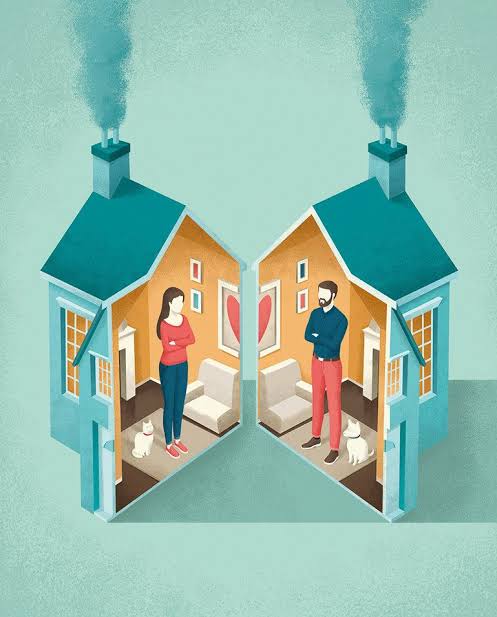
More often than not, the life of a separated woman in our nation is no less than living hell. Being divorced unfortunately tends to overshadow any other qualities or achievements that a woman may possess. Marriage, separation, and divorce seem like faraway concepts to most twenty something year olds, including the writer and (probably) you, the reader. What’s even more unimaginable is the idea that your neighbours, your coworkers, even your house-help, will base their opinion of you solely on your marital status.
In India, only 13 out of 1000 marriages end in divorce. But this does not imply that most are happy ones. These figures cloak the bigger picture and reek of a system that doesn’t allow females much autonomy.
Women in unhappy marriages find themselves unable to leave due to stigma and pressure exerted by a profoundly patriarchal society. They are more prone to post-divorce harassment, often blamed for their marriage’s failure, justifiably or not. Furthermore, they face character assassination if they seek alimony or financial aid.
Witnessing a close family relative go through this ordeal is primarily disheartening. From rumors hovering in the air, making her life miserable to strangers’ passing of constant judgments, she has witnessed it all. I remember watching her feel intensely vulnerable, and it broke my heart to be unable to offer comfort. I was “too young to understand.”
Telling a woman that the atrocities she faces or the unfair behavior she puts up with are part and parcel of married life is not okay. Toxicity in a relationship should not be considered as an aspect of marriage. It should be dealt with carefully, providing as much support to the victim as they require.
At her own parents’ home, where she was living, she would be kept in the dark about any recent developments in the family, fearing she would cast an “evil eye” upon the same. Moreover, the fact that she was a divorcée would cause other family members to hesitate to invite her to any religious or cultural celebrations. Is this what “God wishes,” or is it a consequence of stigmatized claptrap?
Events like these naturally force women to stay in bad or even potentially harmful marriages. The toll this took on her mental health was devastating. Despite being physically close to everyone, she would always feel lost, and like she didn’t belong there. There is no greater agony than finding that your family members have turned into strangers overnight.
Why is it that the divorced woman is forced to undergo such painful situations, the kind that her male counterpart doesn’t face? Despite possessing suitable judicial rights, why is she still powerless at the hands of society? Why is the Indian woman conditioned to sacrifice everything at the altar of patriarchy?
This stigma is so deeply ingrained that even kids growing up have preconceived notions about divorce. I remember my classmates treating a boy differently and talking about him behind his back, just because his parents separated. My own family suggested that I pick a different topic for this very article.
Things cannot take a turn for the better until and unless we normalize talking about divorce and recognize its importance as the end of a distressing situation.
Her right to a life of dignity should not be dependent on a woman’s obedience to social standards and protocols. Married or not, a woman’s life has inherent value, a fact that is often overlooked.
Forget men, forget marriage, forget the idea of docile, obedient wives chained to their kitchens.
Women, married or otherwise, deserve a place under society’s roof- not under its heel.
Written by Abhineet Kashyap for MTTN
Edited by Saher Kalra for MTTN
Featured image by Andrea de Santis on Behance
Artwork from www.ellevest.com

Leave a Reply
You must be logged in to post a comment.